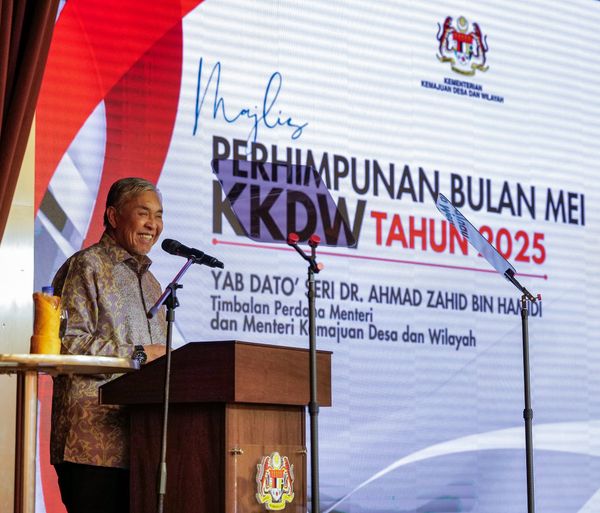PUTRAJAYA, May 8 — Deputy Prime Minister Datuk Seri Ahmad Zahid Hamidi has called on the Rural and Regional Development Ministry (KKDW) to formulate a comprehensive rural youth development plan to produce a digitally literate, knowledgeable and skilled young rural generation capable of navigating the challenges of the modern world.
He said the plan would not only create jobs through the establishment of rural gig hubs, but nurture young leaders by appointing rural youth ambassadors to serve as the voice and representative of the new rural generation.
“Through this plan, we can also introduce the Asean Rural Youth Exchange Programme, offering our young people the opportunity to gain knowledge and experience on an international platform,” he said when speaking at the KKDW’s monthly assembly here today.
Zahid, who leads the KKDW, expressed confidence that his ministry can develop the plan with the active involvement of all agencies under the ministry, coordinated through a dedicated platform or committee.
“Our goal is clear, I want Malaysian rural youth to penetrate borders, explore the world and compete on the global stage. They are not just the heirs of the nation, but the country’s strategic assets and drivers of Malaysia’s future,” he said.
Commenting on Prime Minister Datuk Seri Anwar Ibrahim’s message delivered during a meeting with the KKDW leadership last March, Zahid said the prime minister had stressed the importance of ensuring that every basic rural development project is implemented effectively, with tangible benefits that can be felt and appreciated by the people.
“The prime minister also reminded us that monitoring must be carried out diligently and comprehensively, with accurate reports submitted to Cabinet members and that all arising issues should be addressed without delay,” he said.
As a follow-up, Zahid suggested that KKDW develop a comprehensive and transparent monthly performance schedule to serve as a reference in tracking the progress of projects and the delivery of aid to the community.
He also highlighted the importance of having complete, fact-based data to ensure that no target group is left behind in the Rural Transformation Agenda.
“We must move based on data, lead with information and act with confidence. The guidance and direction are already in place, now it’s time for us to focus on delivering real, impactful actions on the ground, not just plans that look good on paper,” he said.
Meanwhile, he called on the Community Development Department (KEMAS) to strengthen engagement sessions with parents and educators to evaluate the impact of the implementation of the KEMAS Pre-Tahfiz programme since last year.
“These engagements are crucial for gathering feedback and suggestions for improvements, including the proposal to establish a special needs nursery,” he said.
He said initiatives like these play a significant role in driving social mobility within rural communities, and KKDW needs to ensure every programme genuinely impacts people’s lives and delivers meaningful change.
— Bernama




